The new sunscreen laws on Maui and soon the Big Island intends to ban all sunscreens that are not GRASE (generally regarded as safe and effective) by the US FDA.
The problem, as acknowledged in Maui’s new sunscreen law that calls for the potential of up to $1,000 fines for non-compliance, many chemicals are indeterminate at this point in time per the FDA. Read on for how Maui is handling that.
FDA petitioners: Hawaii Reef and Ocean Coalition, Friends of Hanauma Bay, Kahaluu Bay Education Center, Fair Wind Cruises.
Environmental advocates requested that the FDA designate a dozen of the current sunscreen active ingredients as “not generally recognized as safe and effective.” The two “active ingredients” which are and will remain on the GRASE list are titanium dioxide and zinc oxide.
According to the new Maui law, they believe aminobenzoic acid (PABA) and trolamine salicylate, are being proposed as non-GRASE. But, in fact, FDA has not ruled in that regard and that could take into sometime in 2023 to happen. For now, at least, those aren’t allowed.
The primary “chemical” active ingredients in sunscreen had been oxybenzone, octinoxate, and octocrylene. Those are out. Currently, the FDA is finalizing a determination regarding in total 16 sunscreen active ingredients. It is being suggested that the FDA call for the planned phaseout of products containing these chemicals, which include cinoxate, dioxybenzone, ensulizole, homosalate, meradimate, octisalate, padimate O, sulisobenzone and avobenzone.
Concern exists that these ingredients plus prior banned ones are “readily bioavailable in the human body,” meaning that they end up in our blood. Unless these ingredients become part of GRASE sunscreens, they are banned on Maui and soon on the Big Island. The FDA has up to 5 more months to respond to the petition, and thus far declined to comment. Meanwhile, sunscreen manufacturers are preparing to respond.
Which products are approved or prohibited on Maui?
The number of sunscreen manufacturers is vast, and each company may have many products. So our focus is on what to look for in a sunscreen product, rather than what brand to buy.
The Maui ban on non-mineral sunscreens extends at this point to all sunscreens with sun-blocking chemicals, as well as nanotized zinc oxide (where 50% or more of the particles are between 1 and 100 nanometers). While still technically a mineral sunscreen, these nano-particles can be absorbed through the skin of the wearer, and are small enough to be ingested by coral polyps. To be clear, as of October 1, 2022, the sale, distribution, or use of sunscreens with any active ingredient other than ‘non-nanotized’ zinc oxide or titanium dioxide is banned, unless the user has a prescription.
It has been suggested that unless a product says specifically that it is non-nano or non-micronized, you should be suspicious.
Look for sunscreen “active ingredients” only.
Focus on the active ingredients, not on other ingredients. This law is related to the sunscreen’s active ingredients only. The sole sunscreen active ingredients currently recognized by the FDA (and by Maui) as GRASE at this point are non-nanotized zinc oxide and titanium dioxide. So that’s all that is permitted on Maui at this time. If other ingredients are added to this list in the future, it may prompt revisions to the Maui ordinance.
Good news for Maui visitors.
These measures seem designed to target retail outlets and would be awkward to effectively implement against private citizens, especially if they are from out-of-state.
Safe for humans or safe for marine life?
It is worth noting that the designation of “generally recognized as safe and effective” is really only related to human safety and does not necessarily mean they are safe for marine life. Other groups have petitioned the EPA to weigh in on the issue, from an environmental perspective.
Many people have commented that the ban on personal use is “unenforceable” and suggested that the county should go after retailers instead. There is little reason to think that the county does not recognize the relative efficiency of targeting retailers vs end users and all indications are that they plan to do just that. According to the county’s website, the consequences of non-compliance are as follows: “A notice of violation will be mailed that may require any or all of the following, cease and desist from the violation, correct the violation at the person’s own expense before a specified date, cay a civil fine not to exceed $1,000.00 by a specified date, pay a civil fine of up to $1,000.00 per day for each day the violation persists.”
Get Breaking Hawaii Travel News
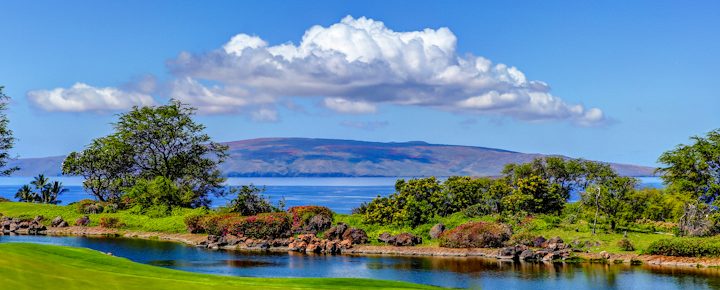
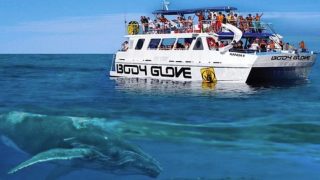

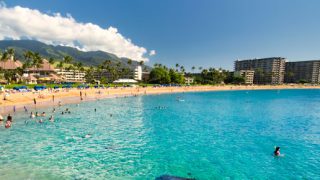
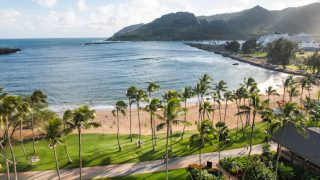
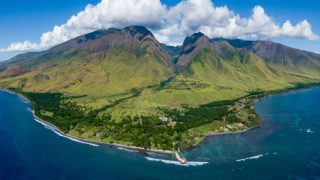
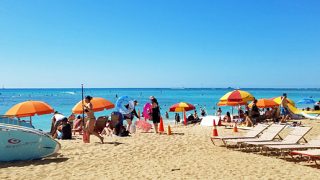
Thank you for this informative article! You mentioned “The FDA has up to 5 more months to respond to the petition”. To clarify, is there an announced deadline by which the FDA has to make a final order on their 2021 proposed order for OTC sunscreens (which includes the GRASE status for active ingredients)?
Hi Christine.
That was a comment from someone at FDA that we heard. Whether it will happen however we don’t know.
Aloha.
It’s very unfortunate such misinformation would lead to legislative action like this. The studies showing reef safety used concentrations of sunscreen actives far higher than realistically possible. It also hasn’t been established that any of the approved actives actually cause harm in humans even if any minute amounts are detected in circulation. I wish we’d focus more on approving filters the rest of the world has been using for decades rather than limit our options even further. Zinc and titanium dioxide aren’t great for everyone.
Mahalo for the info, it’s much better than most other info. Somehow I think this will be an ongoing story for many years.
Aha. I was at a Costco in San Diego last week and picked up a two-pack of Alba Botanica “Hawaiian Coconut Clear Spray Sunscreen,” since I’ve almost used up mine. It had the dreaded asterisk of discontinuation on the price sign. Now I know why. The active ingredients include: avobenzone, octisalate, and homosalate. A rebranding must be in the works. It would be awkward to sell “Hawaiian sunscreen” which is now banned. Mahalo for the heads up.
Hasn’t it been determined that bleaching of the coral is due to higher water temperatures?
What happened to the easy to figure out labeling of “Reef Safe?”
Love all your articles but would love direction on what brands are acceptable for sunscreen. After reading your article I’m more confused
Hi Denise.
There are easily 100 brands of sunscreens. A good place to start might be here: https://www.ewg.org/sunscreen/.
Aloha.